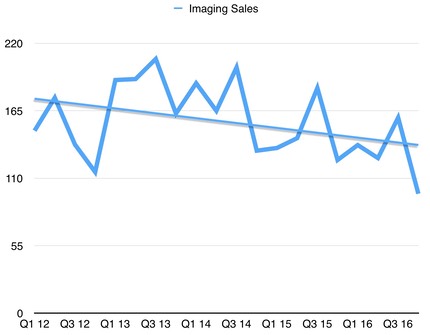I think there's plenty of life yet in DSLRs, and increasingly, it will be the camera that makes the difference - it will not be all about the person behind it.
People love shallow DoF bokeh effects with super-blurred backgrounds - what has become known as 'the professional look' that wedding couples seek and is driving the resurgence of fast prime lenses. You just can't get that with a cameraphone, not without messing about in software, taking time and effort and skill (in short supply amongst cameraphone users, it's all about convenience) - and it rarely looks that good.
Plenty of other no-go areas for the cameraphone too - long lenses for sport and wildlife, flash and studio work, low-light and high ISO, very fast shutter speeds, very long shutter speeds, macro, not to mention those times when only the best image quality will do



